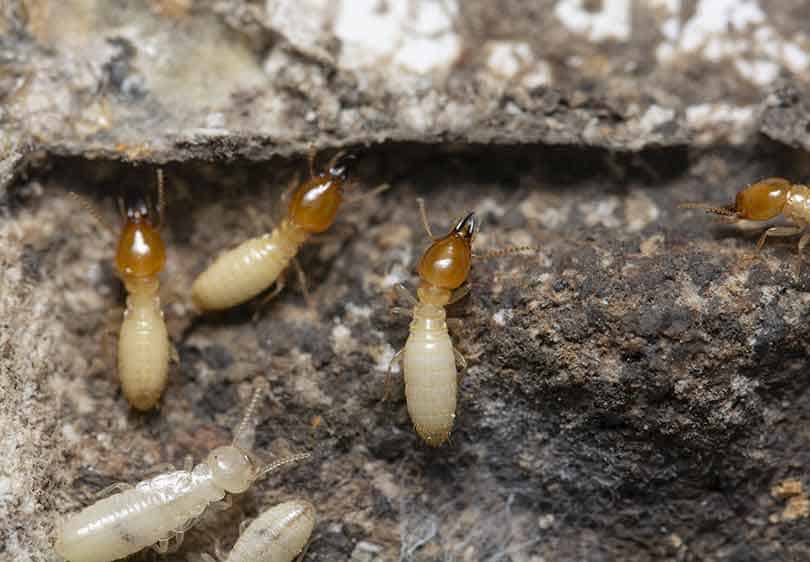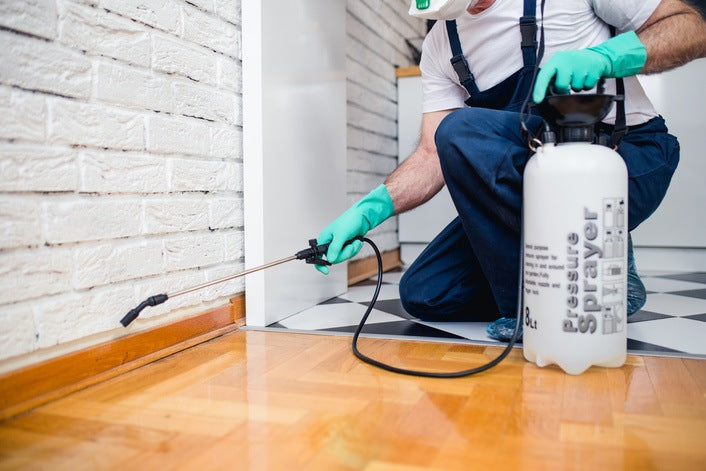Bid Farewell to Unwanted Visitors: Orem Pest Control at Your Service
Wiki Article
Finding the Various Kinds Of Parasite Control Techniques and Their Applications
Bug control is a vital element of maintaining a healthy and safe setting, whether it remain in domestic, commercial, or farming setups. Various strategies have been created and refined throughout the years to successfully alleviate and manage pest invasions. From chemical methods that target particular insects to organic strategies that harness all-natural killers, the realm of insect control is varied and substantial. Comprehending the different types of parasite control methods and their applications is necessary for executing one of the most suitable and sustainable remedies. Let's check out the ins and outs of these techniques and exactly how they can be effectively made use of to resolve pest-related challenges.Chemical Parasite Control Techniques
Chemical insect control techniques are extensively utilized in agriculture and pest management to efficiently remove or regulate pest infestations. These approaches involve making use of chemical compounds, such as herbicides, chemicals, and insecticides, to minimize or get rid of insect populaces that present a risk to crops, livestock, or human health. Pesticides, for instance, target particular bugs like rodents, bugs, or weeds, interrupting their life process or creating straight damage upon contact. Herbicides are specifically designed to manage undesirable greenery that contends with crops for resources and nutrients. Pesticides, on the other hand, are made use of to combat insect bugs that can harm crops and transfer conditions.While chemical bug control techniques can be extremely efficient in taking care of bug populaces, they also increase worries regarding potential environmental and health risks. Improper usage or overuse of chemical pesticides can result in contamination of soil, air, and water, hurting non-target organisms and causing long-term eco-friendly damage. Furthermore, repeated direct exposure to chemical deposits might pose health risks to farmworkers, consumers, and wild animals. It is crucial to follow security standards, make use of incorporated pest administration techniques, and consider alternative approaches to decrease the unfavorable influences of chemical insect control methods.
Organic Parasite Control Techniques
 Biological insect control methods use living organisms to handle and lower bug populations in a eco friendly and lasting manner. One usual technique is the release of ladybugs to deal with aphids in yards, as ladybugs are all-natural killers of these damaging parasites.
Biological insect control methods use living organisms to handle and lower bug populations in a eco friendly and lasting manner. One usual technique is the release of ladybugs to deal with aphids in yards, as ladybugs are all-natural killers of these damaging parasites.
Biological pest control methods provide a number of advantages over chemical approaches. In general, organic pest control approaches provide a efficient and all-natural alternative to traditional chemical therapies, advertising a well balanced ecological community and much healthier settings.
Physical Parasite Control Approaches
Making use of physical approaches to manage insects entails the use of non-chemical or mechanical means to reduce and manage bug problems properly. One typical physical pest control approach is the installment of fences, webs, or screens to obstruct parasites from entering details locations.One more physical strategy is making use of catches, such as breeze catches for rats or scent catches for pests. These catches purpose to record parasites without posing any risk to humans or the environment. In addition, physical control methods can consist of methods like handpicking bugs off plants, utilizing vacuum cleaner gadgets to remove insects, or employing heat therapies to get rid of bed pests and various other bugs in plagued areas.
Integrated Pest Management Approaches
Implementing an all natural strategy to pest monitoring, Integrated Bug Monitoring (IPM) methods intend to incorporate numerous reliable strategies to regulate and stop parasite invasions while reducing environmental influence and making sure sustainable parasite control methods. IPM involves the assimilation of several control techniques such as organic control, cultural techniques, mechanical control, and the cautious use chemicals.

Furthermore, IPM stresses the value of monitoring and assessing pest populaces to establish the most appropriate control approaches. By implementing IPM approaches, parasite control efforts end up being extra targeted and effective, minimizing the dangers related to excessive pesticide use and promoting lasting bug monitoring solutions.
Natural and Organic Parasite Control Options

One prominent natural bug control approach is neem oil, obtained from the seeds of the neem tree, which works as a repellent and interrupts the my company growth and growth of insects. Diatomaceous planet, an all-natural silica-based powder, is another efficient natural insect control option that functions by drying out pests upon contact. By including natural and natural bug control options into bug administration strategies, individuals can efficiently manage parasites while decreasing damage to the atmosphere and promoting sustainable methods.
Final Thought
Finally, various parasite control techniques such as chemical, biological, physical, integrated bug monitoring, and all-natural alternatives are available for successfully handling bug problems. Each approach has its own advantages and applications depending on the type of insect and the atmosphere. By comprehending the different types of pest control techniques and their applications, individuals can make informed choices on one of the most ideal strategy to regulate parasites and safeguard their residential or commercial property.Chemical insect control methods are extensively made use of in agriculture and bug monitoring to effectively remove or regulate pest problems - Orem Pest Control. All-natural bug control techniques entail using biological control representatives, such as predators or bloodsuckers, to take care of insect populaces. By integrating organic and natural insect control options into insect monitoring methods, people can successfully manage bugs while decreasing injury to the atmosphere and promoting sustainable methods
In verdict, various parasite control methods such as chemical, biological, physical, integrated insect administration, and all-natural choices are available for successfully taking care of bug infestations. By recognizing the different kinds of insect control strategies and their applications, individuals can make informed go to my blog decisions on the most suitable technique to manage insects and safeguard their residential or commercial property.
Report this wiki page